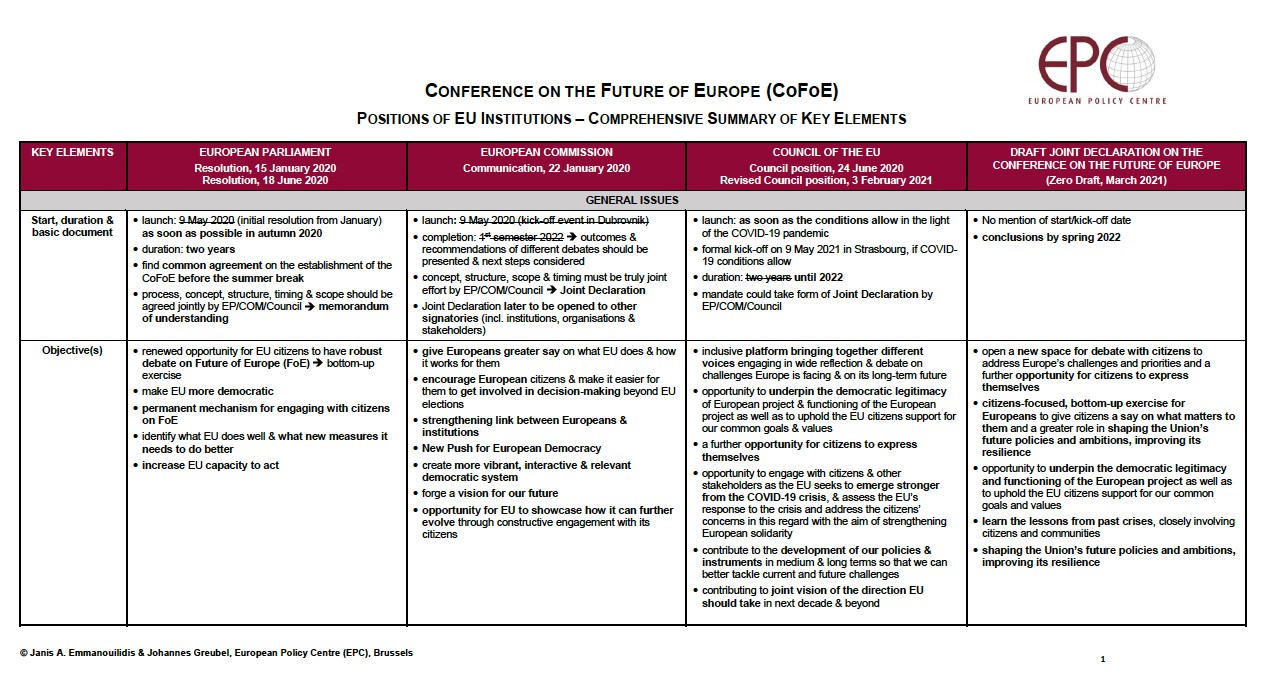The Conference on the Future of Europe is finally ready to start. After an eight-month-long negotiation, the European Commission, the European Parliament and the Council agreed on a Joint Declaration, determining the Conference’s mandate, set-up, agenda and principles.
To get there, EU institutions needed to
overcome various stumbling blocks and find a compromise that takes into account each institution’s preconditions.
The updated table below gives an overview of all institutions’ positions and how they compare to the Draft Joint Declaration. The table shows (1) the general issues connected to the mandate of the initiative, (2) its structure and composition, (3) the Conference’s governance, (4) its plans for citizens’ participation, and (5) the expected outcome.
Since Commission President Ursula von der Leyen announced to hold a Conference on the Future of Europe in June 2019, all institutions formulated their positions on how this initiative should look like, each with its own conditions and level of ambition. The European Parliament was first to adopt its vision in a resolution on 15 January 2020, a week before the Commission presented its ideas on the Conference in a dedicated communication (22 January 2020). After much delay caused by the COVID-19 outbreak, the Council was last to position itself on 24 June 2020, initiating the inter-institutional negotiations on the Joint Declaration.
Building on our expertise and extensive
body of work on citizen participation in the EU, the European Policy Centre will continue to closely monitor and analyse the Conference, provide recommendations to policymakers and organisers, and follow up on the outcome.
